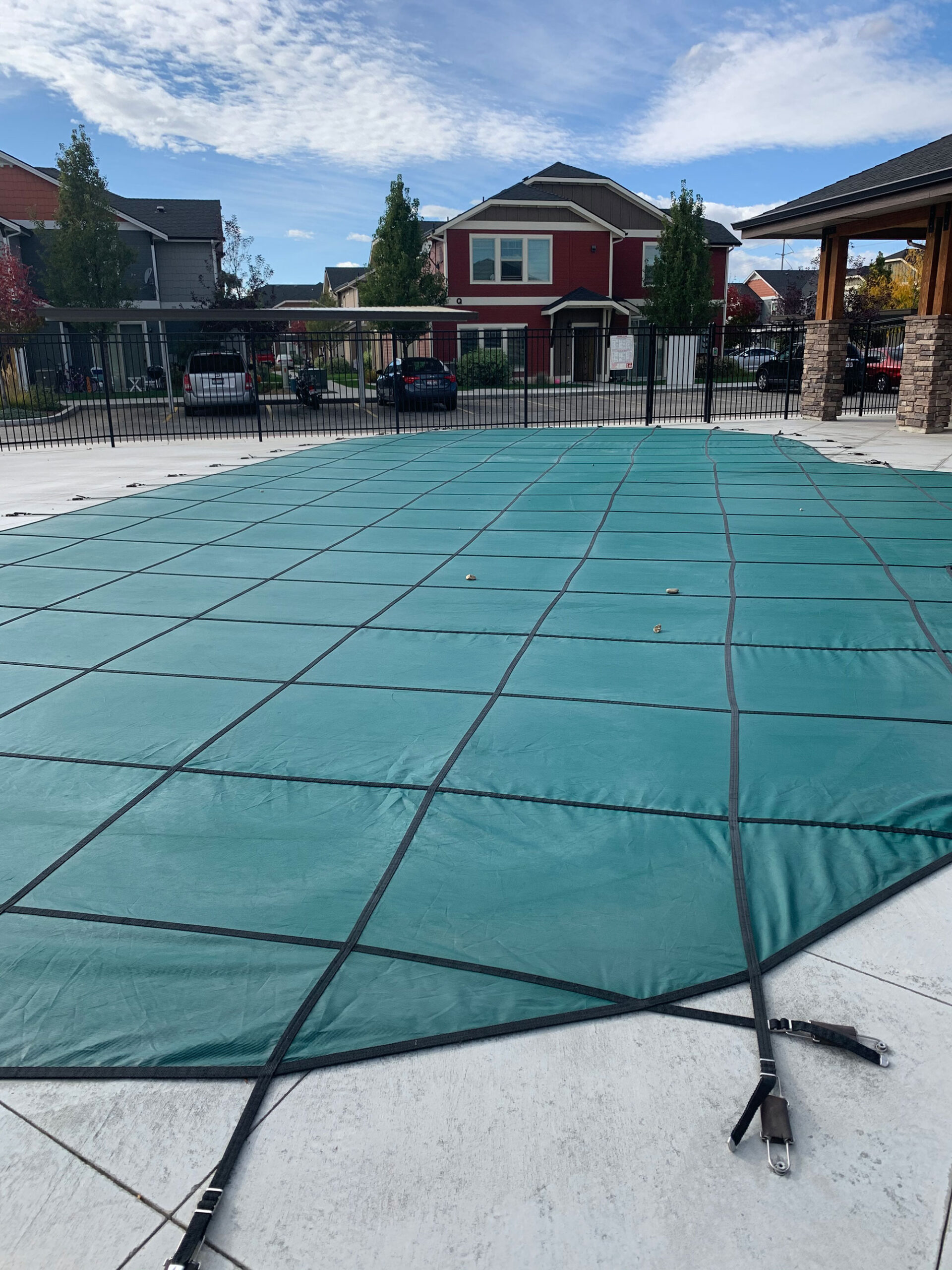For pool owners, especially in areas with diverse climates like Idaho, the question of whether to invest in a pool cover often arises. While the upfront cost of a pool cover can vary significantly, from basic winter covers starting at around $2,500 to high-end automatic options reaching up to $22,000, the benefits can be substantial. In this blog post, we’ll explore why a pool cover might be a worthwhile investment and how it can provide long-term savings and safety benefits.
1. Reduced Cleaning Time and Costs
One of the most immediate benefits of a pool cover is the reduction in debris that enters the pool. Leaves, dirt, insects, and other unwanted materials are kept out, significantly reducing the time and effort required to clean the pool. This not only makes pool maintenance easier but can also lower the costs associated with pool cleaning services and equipment, such as skimmers and vacuum systems.
2. Savings on Heating and Chemical Costs
Pool covers are highly effective at conserving heat, which can lead to significant savings on heating costs. By preventing heat loss, especially during cooler nights or off-seasons, a pool cover can reduce the amount of energy required to maintain a comfortable water temperature. In fact, some automatic covers can offer up to 70% savings on operational costs. Additionally, a covered pool loses less water through evaporation, which means fewer chemicals are needed to maintain water balance, leading to further cost savings.
3. Enhanced Safety
Safety is a paramount concern for any pool owner, and a pool cover can play a crucial role in preventing accidents. A sturdy, properly installed pool cover can prevent accidental drownings, providing an added layer of protection for children, pets, and even wildlife. This peace of mind is invaluable, as it significantly reduces the risk of tragic incidents. Pool covers are not only a safety feature but also a means to ensure that your pool area is secure when not in use.
4. Maintenance Reduction
In addition to reducing the need for cleaning, pool covers also help protect the pool’s structural components and equipment. By minimizing exposure to the elements, a cover can prevent premature wear and tear on the pool’s surfaces, plumbing, and filtration systems. This protection can extend the lifespan of these components, saving money on repairs and replacements over time.
5. Installation by Reputable Professionals
To maximize the benefits of a pool cover, it is essential to have it installed by a reputable company with a proven track record in cover installation and post-installation service. Professional installation ensures that the cover fits correctly and functions as intended, providing optimal protection and durability. A well-installed cover can offer years of reliable service, making it a sound investment.
FAQs
1. How much does a pool cover typically cost?
Answer: The cost of a pool cover can range from around $2,500 for basic winter covers to up to $22,000 for high-end automatic covers. The price depends on the type of cover, its size, and the specific features it offers.
2. Can a pool cover really save on heating and chemical costs?
Answer: Yes, a pool cover can significantly reduce heating costs by preventing heat loss and reducing evaporation. This not only conserves energy but also reduces the need for chemicals, as less water is lost and chemical balance is easier to maintain.
3. How does a pool cover enhance safety?
Answer: A pool cover provides a barrier that can prevent accidental drownings, making it an essential safety feature for families with children and pets. It helps keep the pool area secure and reduces the risk of accidents when the pool is not in use.
4. Do I need a professional to install my pool cover?
Answer: Professional installation is highly recommended to ensure that the pool cover fits properly and functions correctly. A reputable installer can provide a cover that offers maximum protection and durability, ensuring that you get the full benefits of your investment.
5. Are pool covers worth the expense in regions with seasonal pool use?
Answer: Yes, even in regions where pools are used seasonally, a pool cover can protect the pool during off-seasons, reduce maintenance needs, and extend the life of pool components. The cost savings and safety benefits make a pool cover a valuable addition, regardless of the frequency of pool use.
Conclusion
Investing in a pool cover is a decision that can bring numerous benefits, from reducing cleaning and maintenance costs to saving on heating and chemical expenses. Moreover, the safety features provided by a pool cover are invaluable, offering protection for your family and pets. While the initial cost can vary depending on the type and quality of the cover, the long-term savings and peace of mind can easily justify the investment. Whether you opt for a basic winter cover or a sophisticated automatic cover, the benefits of installing a pool cover are clear and significant.

